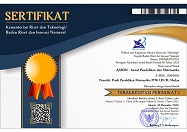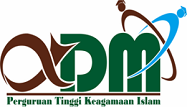ETNOMATEMATIKA: EKSPLORASI KONSEP MATEMATIKA DAN NILAI KARAKTER PADA PERMAINAN TRADISIONAL JAWA GANJILAN
Abstract
Penelitian ini bertujuan untuk mendeskripsikan hasil eksplorasi konsep matematika dan nilai karakter dalam permainan tradisional Jawa Ganjilan. Penelitian ini merupakan penelitian kualitatif dengan pendekatan etnografi. Tahapan etnografi dalam penelitian ini adalah menentukan subjek penelitian, melakukan observasi dan wawancara selama permainan, membuat catatan hasil, dan menganalisis temuan. Pengumpulan data dilakukan melalui studi kepustakaan, video, observasi, dan wawancara mendalam. Teknik analisis data dilakukan dengan reduksi data, penyajian data, dan penarikan kesimpulan. Analisis data dilakukan untuk mengidentifikasi konsep matematika dan nilai karakter yang terdapat dalam permainan tradisional Jawa Ganjilan. Konsep matematika yang ditemukan adalah konsep penjumlahan, konsep pengurangan, konsep perkalian, konsep perbandingan bilangan, konsep pecahan, konsep modal dan hasil, dan konsep untung-rugi. Nilai-nilai yang terkandung dalam permainan tradisional Jawa Ganjilan adalah karakter sabar, mengasah kemampuan emosi, menaati aturan, percaya diri, mandiri, dan sportif. Berdasarkan temuan tersebut, permainan tradisional Jawa Ganjilan dapat dijadikan sebagai sumber belajar matematika dan bermanfaat dalam mengembangkan karakter.
Abstract
This study aims to describe the results of the exploration of mathematical concepts and character values in a traditional game known as “Jawa Ganjilan”. This is qualitative research with an ethnographic approach. The ethnographic stages in this study were determining the research subjects, conducting observations and interviews during the game, taking notes on the results, and analyzing the findings. Data collection was carried out through library research, videos, observations, and in-depth interviews. Data analysis techniques were carried out through data reduction, data presentation, and concluding. Data analysis was carried out to identify the mathematical concepts and character values contained in the traditional Javanese odd game. The mathematical concepts found are the concept of addition, the concept of subtraction, the concept of multiplication, the concept of a number comparison, the concept of fractions, the concept of capital and returns, and the concept of profit and loss. The values contained in the traditional Javanese game of oddity are character patience, honing emotional abilities, obeying rules, self-confidence, independence, and sportsmanship. Based on these findings, traditional Javanese odd games can be used as a source of learning mathematics and are useful in developing character.
Keywords
Full Text:
PDF (Indonesian)References
Abdullah, A. S. (2017). Ethnomathematics in perspective of sundanese culture. Journal on Mathematics Education, 8(1), 1-16. https://doi.org/10.22342/jme.8.1.3877.1-15
Alam, S. (2021). Teachers' perception toward the use of ethnomathematics approach in teaching math. International Journal of Education in Mathematics, 9(2), 282-298. https://doi.org/10.46328/ijemst.1551
Astuti, E. P., & Purwoko, R. Y. (2017). Integrating Ethnomathematics in Mathematical Learning Design for Elementary Schools. 4th ICRIEMS Proceedings Published by The Faculty Of Mathematics And Natural Sciences, 192-197.
Astuti, E. P., Purwoko, R. Y., & Sintiya, M. W. (2019). Bentuk etnomatematika pada batik adipurwo dalam pembelajaran pola bilangan. Journal of Mathematics Science and Education, 1(2), 1-16. https://doi.org/10.31540/jmse.v1i2.273
Astuti, E. P., & Supriyono, S. (2020). Karakteristik pelaksanaan pembelajaran matematika berbasis etnomatematika untuk siswa sekolah menengah pertama. Jurnal Pendidikan Surya Edukasi (JPSE), 6(1), 49-60. https://doi.org/10.37729/JPSE.V6I1.6492
Bauman, S. S. M., Acker-Hocevar, M., Talbot, D. L., Visaya, A., Valencia, M., & Ambriz, J. (2019). Exploring and promoting the college attendance and success of racial/ethnic minority students. Journal of Multicultural Counseling and Development, 47(1), 37-48. https://doi.org/10.1002/JMCD.12119
Creswell, J. W. (2009). Research design (qualitative, quantitative, and mixed methods approaches). SAGE Publication. https://doi.org/10.1080/14675980902922143
D'Ambrosio, U. (2001). What is ethnomathematics, and how can it help children in schools? Teaching Children Mathematics, 7(6), 308.
D'Ambrosio, U. (2007). The role of mathematics in educational systems. ZDM - International Journal on Mathematics Education, 39, 173-181. https://doi.org/10.1007/s11858-006-0012-1
De Corte, E. (2004). Mainstreams and perspectives in research on learning (mathematics) from instruction. Applied Psychology, 53(2), 279-310. https://doi.org/10.1111/j.1464-0597.2004.00172.x
Dewi, K. Y. F., & Yaniasti, N. L. (2016). Pendidikan karakter melalui permainan tradisional anak. Jurnal Fakultas Keguruan Dan Ilmu Pendidikan Daiwi Widya, 3(3), 1-9.
Dharmamulya, S. (2008). Permainan tradisional Jawa. Kepel Press.
Eraikhuemen, L., & Aikpitanyi, L. A. (2015). Mathematics teachers' awareness of ethnomathematics approach in teaching. International Journal of Assessment and Evaluation, 21, 1-8. https://doi.org/10.18848/2327-7920/cgp/v21i3-4/48364
Fraenkel, R. J., Wallen, E. N., & Hyun, H. H. (2011). How to design and evaluate research in education. McGraw-Hill.
Freudenthal, H. (1973). Mathematics as an educational task. Instructional Science, 6(2), 187-197. https://doi.org/10.1007/978-94-010-2903-2_10
Hidayati, N. N. (2020). Indonesian traditional games: A way to implant character education on children and preserve indonesian local wisdom. Istawa : Jurnal Pendidikan Islam, 5(1), 81-101. https://doi.org/10.24269/ijpi.v5i1.2475
Hsu, W.-M., Lin, C.-L., & Kao, H.-L. (2013). Exploring teaching performance and students' learning effects by two elementary indigenous teachers implementing culture-based mathematics instruction. Creative Education, 04(10), 663-672. https://doi.org/10.4236/ce.2013.410095
Hutcheon, P. D. (1999). Building character and culture. Praeger.
Imswatama, A., & Lukman, H. S. (2018). The Effectiveness of Mathematics Teaching Material Based on Ethnomathematics. International Journal of Trends in Mathematics Education Research, 1(1), 35-38. https://doi.org/10.33122/ijtmer.v1i1.11
Johnson, J. (2017). A topic revisited: Students in the republic of the maldives writing contextual word problems. International Electronic Journal of Mathematics Education, 12(3), 549-559.
Jurdak, M. (2016). Real-world problem solving from the perspective of ethnomathematics. In Learning and Teaching Real World Problem Solving in School Mathematics. Springer. https://doi.org/10.1007/978-3-319-08204-2_8
Karimi, A. F. (2012). Think different: Jejak pikir reflektif seputar intelektualitas, humanitas dan religiuitas. MUHI Press.
Karnilah, N. (2013). Study ethnomathematics: Pengungkapan sistem bilangan masyarakat adat Baduy. Universitas Pendidikan Indonesia.
Koentjaraningrat. (2010). "Manusia dan Kebudayaan Di Indonesia." Djambatan.
Kurniati, E. (2016). Permainan tradisional dan perannya dalam mengembangkan keterampilan sosial anak. Prenada Media Grup.
Lickona, T. (1999). Character education: Seven crucial issues. Action in Teacher Education, 20(4), 77-84. https://doi.org/10.1080/01626620.1999.10462937
Maryati, & Pratiwi, W. (2019). Etnomatematika: Eksplorasi dalam tarian tradisional pada pembukaan asian games 2018. FIBONACCI: Jurnal Pendidikan Matematika Dan Matematika, 5(1), 23-28. https://doi.org/10.24853/FBC.5.1.23-28
Mauluah, L., & Marsigit. (2019). Ethnomathematics for elementary student: Exploration the learning resources at kraton Yogyakarta. International Journal of Scientific and Technology Research, 8(07), 776-780.
Merliza, P. (2021). Studi etnomatematika: Eksplorasi konsep matematika pada permainan tradisional Provinsi Lampung. Suska Journal of Mathematics Education, 7(1), 21-30. https://doi.org/10.24014/SJME.V7I1.12537
Muslimin, M., Putri, R. I. I., & Somakim. (2012). Pembelajaran pengurangan bilangan bulat melalui permainan tradisional congklak berbasis pendidikan matematika realistik Indonesia di kelas iv sekolah dasar. Kreano: Jurnal Matematika Kreatif-Inovatif, 3(2), 100-112. https://doi.org/10.15294/kreano.v3i2.2642
Naja, F. Y., Mei, A., & Sa'o, S. (2021). Eksplorasi konsep etnomatematika pada gerak tari tradisional Suku Lio. AKSIOMA: Jurnal Program Studi Pendidikan Matematika, 10(3), 1836-1847. https://doi.org/10.24127/AJPM.V10I3.3885
Prahmana, R. C. I., & D'Ambrosio, U. (2020). Learning geometry and values from patterns: Ethnomathematics on the batik patterns of yogyakarta, indonesia. Journal on Mathematics Education, 11(3), 439-456. https://doi.org/10.22342/jme.11.3.12949.439-456
Prahmana, R. C. I., Zulkardi, & Hartono, Y. (2012). Learning multiplication using Indonesian traditional game in third grade. Journal on Mathematics Education, 3(2), 115-132. https://doi.org/10.22342/jme.3.2.1931.115-132
Pramudita, K., & Rosnawati, R. (2019). Exploration of Javanese culture ethnomathematics based on geometry perspective. Journal of Physics: Conference Series. https://doi.org/10.1088/1742-6596/1200/1/012002
Pratiwi, J. W., & Pujiastuti, H. (2020). Eksplorasi etnomatematika pada permainan tradisional kelereng. Jurnal Pendidikan Matematika Raflesia, 5(2), 1-12.
Purwoko, R. Y., Astuti, E. P., Arti, M. S., & Widiyono, Y. (2019). Batik nusantara pattern in design of mathematical learning model for elementary school. Journal of Physics: Conference Series, 1254(1), 012001. https://doi.org/10.1088/1742-6596/1254/1/012001
Putra, F. G. (2017). Eksperimentasi pendekatan kontekstual berbantuan hands on activity (hoa) terhadap kemampuan pemecahan masalah matematik. Al-Jabar: Jurnal Pendidikan Matematika, 8(1), 73-80.
Rakhman, A., & Wibawa, B. (2019). Character learning through traditional games urang banjar. International Journal of Innovation, Creativity and Change, 8(11), 172-180.
Rianto, H. (2021). Menggali nilai-nilai karakter dalam permainan tradisional. Edukasi: Jurnal Pendidikan, 19(1), 120-134. https://doi.org/10.31571/edukasi.v19i1.2440
Risdiyanti, I., & Prahmana, R. C. I. (2018a). Ethnomathematics: Exploration in Javanese culture. Journal of Physics: Conference Series. https://doi.org/10.1088/1742-6596/943/1/012032
Risdiyanti, I., & Prahmana, R. C. I. (2018b). Etnomatematika: Eksplorasi dalam permainan tradisional Jawa. Journal of Medives : Journal of Mathematics Education IKIP Veteran Semarang, 2(1), 1-11. https://doi.org/10.31331/medives.v2i1.562
Rosa, M., D'Ambrósio, U., Orey, D. C., Shirley, L., Alangui, W. V., Palhares, P., & Gavarrete, M. E. (2016). Current and future perspectives of ethnomathematics as a program. In ICME-13 Topical Surveys. https://doi.org/10.1007/978-3-319-30120-4
Sanyoto, B., Slamet Setiana, D., & Agustito, D. D. (2021). Eksplorasi etnomatematika pada bangunan masjid agung Mataram Kotagede. UNION : Jurnal Ilmiah Pendidikan Matematika, 9(3), 297-308. https://doi.org/10.30738/UNION.V9I3.9522
Spradley, J. P., & McCurdy, D. W. (1972). The cultural experience: Ethnography in complex society. Waveland Press.
Utami, N. W., Sayuti, S. A., & Jailani. (2019). Math and mate in javanese primbon: Ethnomathematics study. Journal on Mathematics Education, 10(3), 341-356. https://doi.org/10.22342/jme.10.3.7611.341-356
Widodo, H. (2019). The role of school culture in holistic education development in muhammadiyah elementary school Sleman Yogyakarta. Dinamika Ilmu, 19(2), 265-285. https://doi.org/10.21093/di.v19i2.1742
Wijaya, A. (2008). Design research in mathematics education Indonesian traditional games as preliminaries in learning measurement of length. Utrecht University.
Wijaya, A. (2009). Permainan (tradisional) untuk mengembangkan interaksi sosial, norma sosial dan norma sosiomatematik pada pembelajaran matematika dengan pendekatan matematika realistik. Prosiding Seminar Nasional Aljabar, Pengajaran, Dan Terapannya.
Wijaya, A., Doorman, L. M., & Keijze, R. (2011). Emergent modelling: From traditional Indonesian games to a standard unit of measurement. Journal of Science and Mathematics Education in Southeast Asia, 34, 149-173.
DOI: http://dx.doi.org/10.30821/axiom.v11i2.12503
Refbacks
- There are currently no refbacks.
Copyright (c) 2023 Erni Puji Astuti, Farida Hanum, Ariyadi Wijaya, Riawan Yudi Purwoko

This work is licensed under a Creative Commons Attribution-ShareAlike 4.0 International License.
p-ISSN: 2087-8249 | e-ISSN: 2580-0450
Indexed by:
AXIOM : Jurnal Pendidikan dan Matematika is licensed under a Creative Commons Attribution-ShareAlike 4.0 International License.











